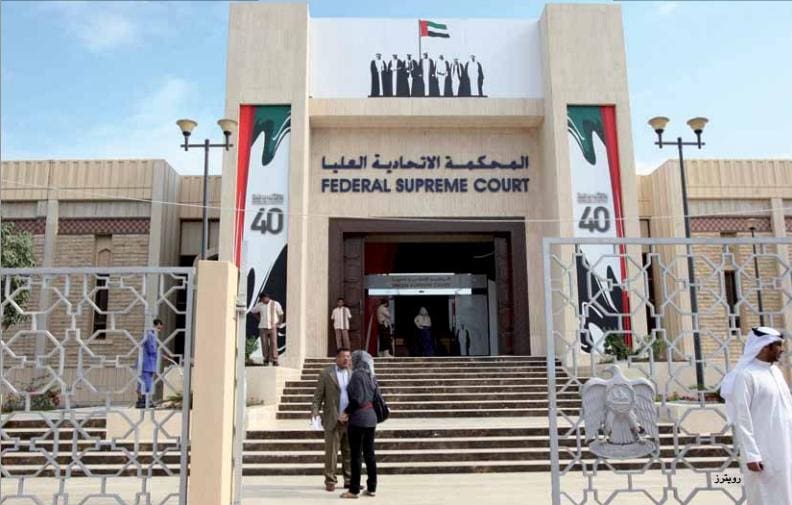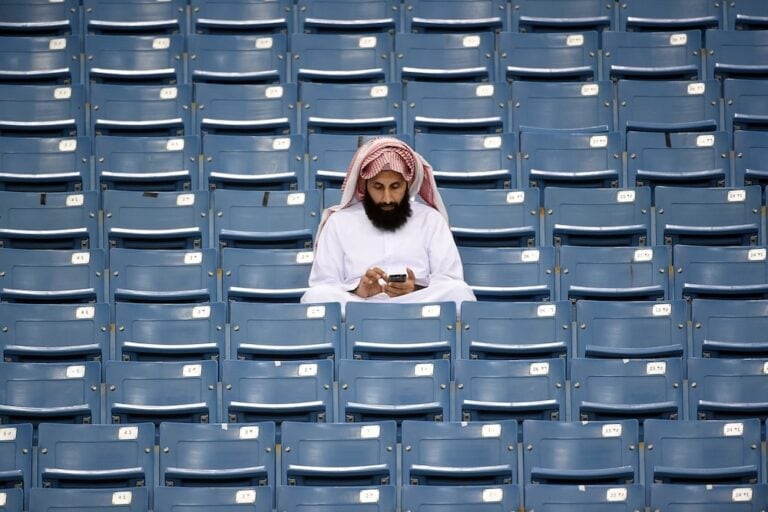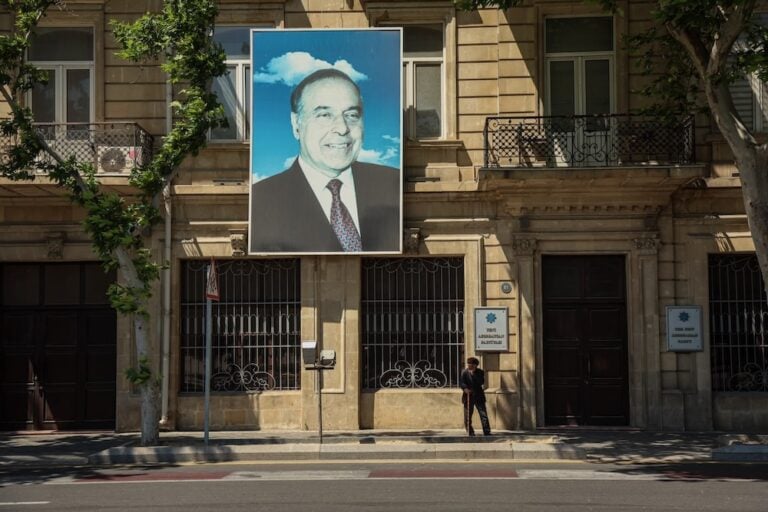News emerged from prison that some of those jailed in the UAE 94 case began a hunger strike on 31 July, with 20 detainees participating to protest the mistreatment they continue to be subjected to while in detention.
In the final hearing of a group of people collectively known as the “UAE 94”, the Federal Supreme Court of Abu Dhabi sentenced [on 2 July 2013] 56 people, including prominent human rights lawyers Mohammed Al-Roken and Mohammed Al-Mansoori, to 10 years in prison.
Eight others were sentenced in absentia to fifteen years; and five defendants were sentenced to seven years. The court acquitted 25 defendants, including all 13 women among the accused. The defendants were charged with, among other things, association with a group aiming to overthrow the country’s political system. Many of those sentenced are members of a local group, al-Islah, which has been engaged in peaceful political debate for many years.
A coalition of NGOs including FIDH, the Gulf Center for Human Rights (GCHR), the Cairo Institute for Human Rights Studies (CIHRS) and the Arabic Network for Human Rights Information (ANHRI) published today the second and final report of the judicial observation of the trial, which the groups call deeply flawed.
The report is being released as news emerged yesterday [26 August 2013] from prison that some of those jailed in the case began a hunger strike on 31 July, with 20 detainees participating to protest the mistreatment they continue to be subjected to while in detention. Among those on hunger strike is human rights lawyer Dr Mohammed Al-Mansoori, whose shoulder has been dislocated in prison.
The coalition mandated British human rights lawyer Melanie Gingell, a member of GCHR’s Advisory Board, to observe the trial which started on 4 March and ended on 2 July 2013. Ms. Gingell was denied access to three hearings despite her compliance with the official regulations and procedures. The content of the report is based on information gathered through interviews conducted by Ms. Gingell with family members who attended the hearings, local human rights defenders and activists, as well as international and local media.
The report, entitled United Arab Emirates: Criminalising Dissent, UAE 94 Trial Deeply Flawed, outlines how the trial of the UAE 94 was marred by recurrent and serious breaches of internationally agreed standards of fair trial, and led to unfair convictions and the imposition of lengthy terms of imprisonment for 69 of the defendants, without giving them the right to appeal the harsh sentences. The four organisations further stress that most of the defendants were tried for exercising their legitimate rights to freedom of association and expression.
“Judicial procedures sanctioning fundamental, legitimate human rights such as freedom of expression and association are unfair. All of those convicted solely on the basis of exercising these rights should be freed and the charges against them dropped,” stated Karim Lahidji, FIDH President.
As the UAE authorities refused to grant access to independent observers and international media, they also cracked down on families of the defendants who published information about the trial through social media. On 8 April 2013, Abdullah Al-Hadidi, the son of a defendant, was sentenced to 10 months’ imprisonment for tweeting that allegations of torture (within the trial) should be investigated.
“The complete blackout about the trial except through local media and the subsequent crackdown on the families of the defendants for denouncing fair trial violations were reported throughout the proceedings. The coverage by local media which published a series of prejudicial articles clearly demonstrates the political interference into these judicial proceedings,” declared Gamal Eid, Executive Director of the Arabic Network for Human Rights Information (ANHRI).
The information collected by the observer led to the conclusion that the court was not independent and free to conduct the trial in a proper manner. Most of the basic principles and fair trial guarantees, as documented in the report, were violated.
“The entire process of the trial did not meet basic international human rights standards, which has consequently led to an unfair trial and unjust sentences,” stated Khalid Ibrahim, Director of the Gulf Center for Human Rights (GCHR).
The four organisations are further dismayed by the court’s dismissal of the torture allegations that were repeatedly reported by the defendants. The UAE authorities have an international legal obligation to duly investigate these serious allegations of torture; failing to do so is a serious breach of the United Nations Convention Against Torture and Other Cruel, Inhuman or Degrading Treatment or Punishment ratified by the UAE in July 2012.
The four organisations call upon the UAE authorities to initiate an immediate, thorough and impartial investigation into the allegations of torture, in addition to an independent inquiry into the conduct of the trial of the UAE 94. “We demand that charges against all those convicted solely on the basis of exercising their legitimate rights be dropped and that those imprisoned be released pending the outcome of the inquiry,” said Ziad Abdel Tawab, deputy director of the Cairo Institute for Human Rights Studies (CIHRS).
In June 2013, during the Universal Periodic Review at the UN Human Rights Council, the UAE authorities vowed to guarantee fundamental human rights. FIDH, GCHR, CIHRS and ANHRI urge the UAE authorities to keep their promises and invite the UN Special Rapporteurs on torture, on freedom of expression and opinion and on the independence of judges and lawyers to visit the UAE and grant them access to those convicted in this case and particularly those who reported torture. The UAE must demonstrate to the international community that it is willing to take immediate measures to guarantee its compliance with its international legal obligations.
International Federation for Human Rights (FIDH)
Gulf Center for Human Rights (GCHR)



